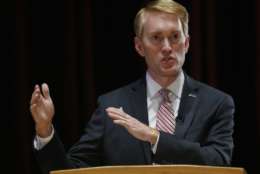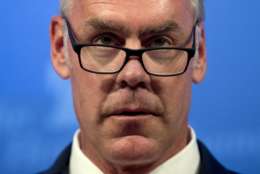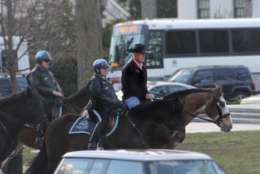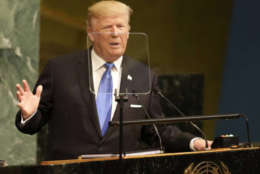Mike Causey
-
Health premiums for folks covered by the Affordable Care Act will jump 50-to-57 percent next year, but federal workers and retirees get a pass.
October 06, 2017 -
The 2018 federal health premiums are out and overall premiums are going up an average of 6 percent.
October 05, 2017 -
The Senate may consider raising the value of all federal buyouts from $25,000 to $40,000, though it's unlikely to happen this year.
October 04, 2017 -
Will the U.S. Senate raise the value of all federal buyouts? Find out this week when Greg Stanford, legislative director of the Federal Managers Association, joins host Mike Causey on this week's Your Turn. October 4, 2017
October 03, 2017 -
When Interior Secretary Ryan Zinke used the L-word and said 30,000 of his employees aren't loyal or aren't saluting the flag, he made headlines and hit a lot of nerves.
October 03, 2017 -
Senior Correspondent Mike Causey says that if health premiums jump as expected, folks will have to shop for a lower-cost plan, regardless of a pay raise and COLA.
October 02, 2017 -
Secretary of the Interior Ryan Zinke says 21,000 of his 70,000 career civil service workers are not loyal to him or President Donald Trump.
September 29, 2017 -
Some studies say federal workers are paid 30 percent, less on average, than private-sector workers. Other experts say feds are getting as much as 70 percent more. Who's right?
September 28, 2017 -
If you work for the government, the odds of you getting a $20,000-$40,000 buyout are about the same as getting hit by lightning while standing in a field pretending to be a cow.
September 27, 2017 The odds of you getting a $20,000-$40,000 buyout are slim so what can you do to build your retirement nest egg? Find out when federal benefits expert Tammy Flanagan joins host Mike Causey on this week's Your Turn. September 27, 2017
September 26, 2017-
How much financial and investing advice should you give to a career civil servant who's got a million-and-a-half dollars in his Thrift Savings Plan?
September 26, 2017 -
Federal workers have worried that Congress will base their pensions on a less generous formula. Mike Causey says there's nothing to worry about ... yet.
September 25, 2017 -
What do buyouts at the Defense Department have in common with matsutake mushrooms? They are both very valuable and very rare.
September 22, 2017 -
The Trump administration wants to find out how many people work, as in really work, rather than are employed, at the U.N., the State Department and other federal agencies.
September 21, 2017 -
Senior Correspondent Mike Causey asks which of the long list of proposed changes to federal retirement is most likely to succeed.
September 20, 2017













